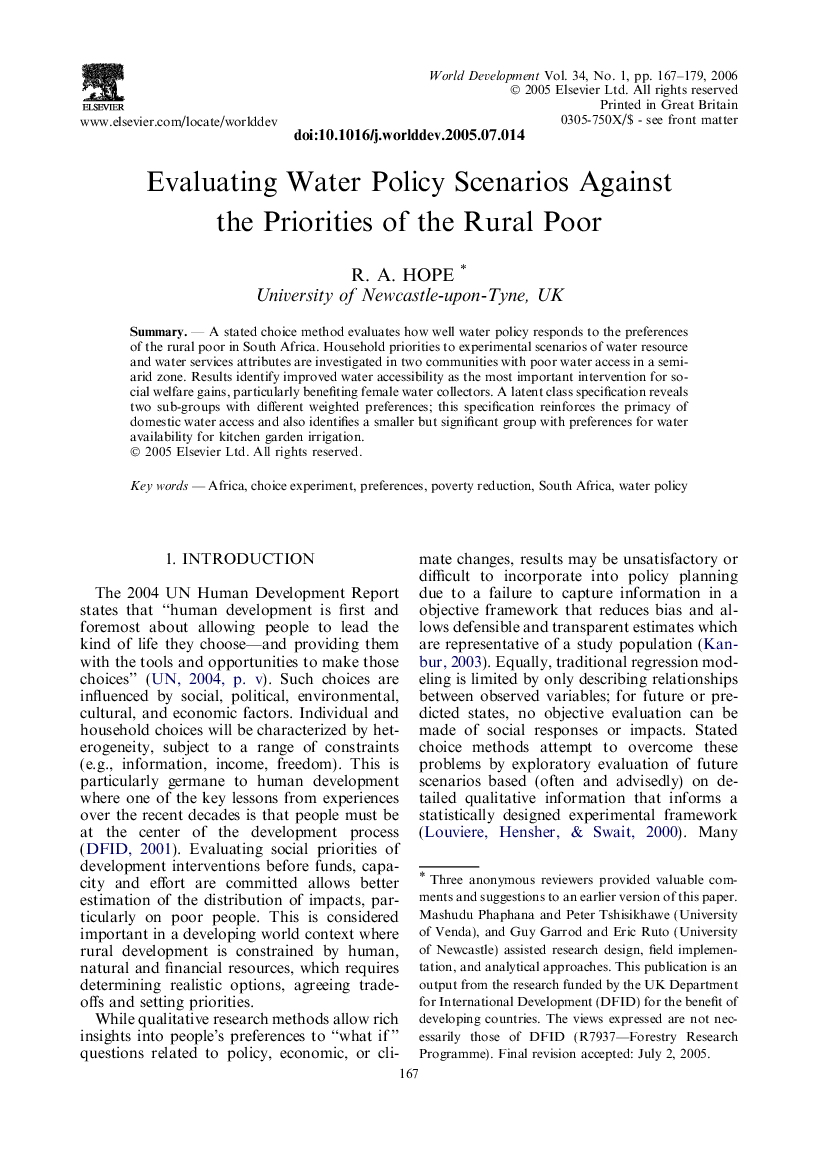| Article ID | Journal | Published Year | Pages | File Type |
|---|---|---|---|---|
| 991851 | World Development | 2006 | 13 Pages |
Abstract
SummaryA stated choice method evaluates how well water policy responds to the preferences of the rural poor in South Africa. Household priorities to experimental scenarios of water resource and water services attributes are investigated in two communities with poor water access in a semi-arid zone. Results identify improved water accessibility as the most important intervention for social welfare gains, particularly benefiting female water collectors. A latent class specification reveals two sub-groups with different weighted preferences; this specification reinforces the primacy of domestic water access and also identifies a smaller but significant group with preferences for water availability for kitchen garden irrigation.
Related Topics
Social Sciences and Humanities
Economics, Econometrics and Finance
Economics and Econometrics
Authors
R.A. Hope,
